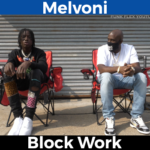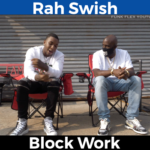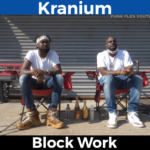We all know Dame Dash to be outspoken about his thoughts on Hip Hop, both past and present, and with his views often come critiques of those in ‘positions of power’ within the culture. Dame has been outspoken on his position of Lyor Cohen and has often called him a ‘Culture Vulture.’ In an interview with Rap Radar, Lyor brushes off a question about Dame Dash saying he can’t answer it if it doesn’t come from a credible source.
One thing is for certain when it comes to Lyor and Dame, they definitely haven’t been on the same page for some time now and it doesn’t seem like that will change anytime soon. The main issue that Dame has with Lyor is that when it comes to the business side of molding an artist, he feels that the artist is getting robbed. In Lyor’s Rap Radar inteview with Elliot Wilson and Bdot, he is questioned about the 360 deal–which he has no problem claiming as his ‘invention.’ In short, Lyor says if he is putting X amount of dollars into an artist, then he should be entering a partnership with the artist. Meaning, any revenue the artist brings in (merchandising, shows, etc) he and the label should collect 15% of that.
Lyor was questioned about whether or not it affects him when people like Dame Dash call him a culture vulture and his response was nothing short of classic. “No, it actually doesn’t bother me. It would bother me if it came from a credible source. If it was a credible source then we could sit and have a conversation…I can’t give any light to that. It’s a clown,” he said following the question aboutDame Dash in particular. SHEESH. I guess you have to respect the fact that Lyor was not holding back at all.
Dame took to Instagram to bring light to the fact that Lyor still would not address him and used his infamous tag ‘Culture Vulture’ when describing him. Dame mirrored the same sentiments that many around the hip hop league have when it comes to the type of deals–360–that Lyor and others offer. Simply put, he and other executives think labels are robbing the artist. One thing comes to mind in this particular instance, however, an interview that Kevin Hart was featured in, he spoke on ‘bossing up’ and not letting people take advantage of him as an artist. He pointed out the fact that his Twitter account was a separate entity for promo and if studios wanted access to it, they would have to pay. Similar lines in the music industry.
Who’s side is valid in the Lyor and Dame dispute?























Dame is absolutely correct those executives are crooks and anyone in that industry knows it